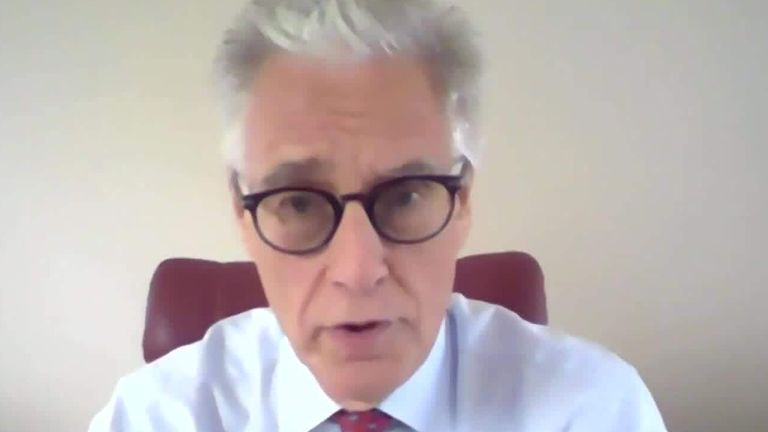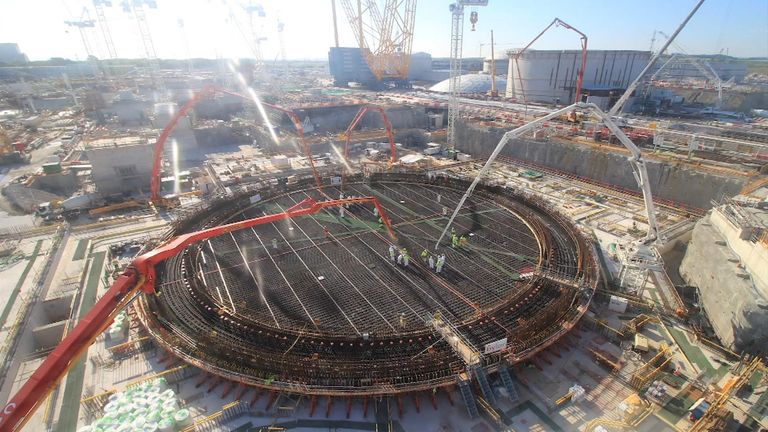The government says it is to start talks with French energy firm EDF on a new nuclear power plant in Suffolk as part of a wider commitment to a clean energy future.
It said the proposed £20bn Sizewell C plant would have to pass stringent affordability and value checks as the company makes the case for a replica to the Hinkley Point C plant in Somerset.
Together, they would be able to produce up to 14% of the UK’s electricity needs – enough to power 12 million homes.
The talks were revealed as ministers set out an Energy White Paper that they said would unlock £12bn in government investment in cleaner energy and support up to 250,000 jobs over the next 10 years.
It includes the establishment of a domestic emissions trading scheme to replace the current EU regime – effective from 1 January when the Brexit transition period has ended.
It would be, the government said, more ambitious through a 5% reduction on the emissions cap.
Other initiatives include further development of offshore wind power, carbon capture and a planned £1.3bn investment in electric vehicle charging points.
The new nuclear element will be seen as the most controversial aspect of the government’s plans to achieve net zero emissions by 2050.
Hinkley Point C was supposed to be generating power by now but has been beset by delays and cost over-runs.
EDF has argued that the UK can not rely on renewables alone to guarantee its needs and has argued that Sizewell C would be substantially cheaper as its design would mirror that of Hinkley’s.
The core question over Sizewell C concerns whether the government is prepared to repeat a funding guarantee given to EDF over the price of electricity generated from Hinkley Point C – now expected from 2025.
Critics argue it is too expensive and will raise household bills but other projects have fallen by the wayside, such as the proposed Wylfa project on Anglesey, because of a lack of private sector investment.
Simone Rossi, EDF’s UK CEO, said: “We’re right behind Net Zero, and by investing in renewables and nuclear at Hinkley Point C and Sizewell C we’re supporting decarbonisation while creating jobs across the UK.
“We will continue to help our customers find affordable, low carbon ways to travel and heat their homes and businesses.
“The time for action is now and we look forward to working with the government to implement its energy and climate policies, including the financing of new nuclear.”
Business and Energy Secretary Alok Sharma said: “Today’s plan establishes a decisive and permanent shift away from our dependence on fossil fuels, towards cleaner energy sources that will put our country at the forefront of the global
green industrial revolution.
“Through a major programme of investment and reform, we are determined to both decarbonise our economy in the most cost-effective way, while creating new sunrise industries and revitalising our industrial heartlands that will support
new green jobs for generations to come.
“At every step of the way, we will place affordability and fairness at the heart of our reforms – unleashing a wave of competition so consumers get the best deals possible on their bills, while protecting the vulnerable and fuel-poor with additional financial support.”



